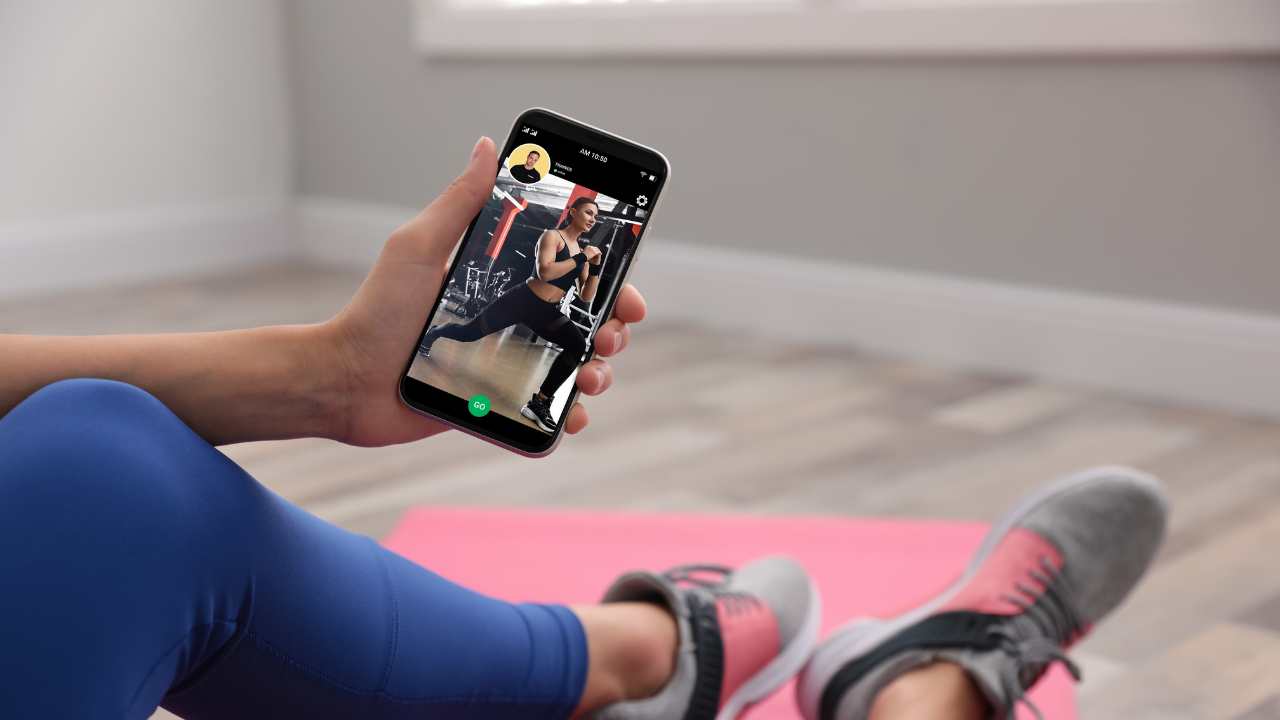What Are White Label Fitness Apps?
White label fitness apps are pre-built apps that businesses can brand with their logo, color scheme, and branding, essentially creating a personalized fitness platform. These apps come with all the functionalities and features needed for a fitness app but allow businesses to present the app as their own.
Why Are White Label Fitness Apps Popular?
With the rise of health-conscious individuals and the increasing shift towards remote workouts, businesses are looking for cost-effective ways to offer fitness solutions. White label fitness apps provide an opportunity for gym owners, fitness trainers, wellness platforms, and health brands to create their own branded app without developing one from scratch.
Key Features of White Label Fitness Apps
- Custom Branding: As mentioned, the core feature of white label apps is customization. The app can be tailored with logos, color schemes, and unique branding elements.
- Comprehensive Workout Plans: Most white label fitness apps come with workout libraries, including video tutorials, training schedules, and fitness tracking.
- User Management: Gym owners and fitness instructors can manage memberships, track attendance, and assign personalized plans to clients.
- Integrations: These apps often offer integrations with wearables like Fitbit and Apple Watch, allowing for seamless tracking of health metrics.
- Payments and Subscriptions: You can integrate payment systems to offer paid subscriptions, memberships, or one-time purchases.
Benefits of White Label Fitness Apps
- Cost-Effective: Developing a fitness app from scratch can be expensive and time-consuming. White label apps offer a budget-friendly alternative.
- Quick Launch: Since the app is pre-built, businesses can launch their fitness platform faster and start generating revenue.
- Scalability: These apps can be easily scaled as the business grows, whether it’s adding more features, users, or services.
- Enhanced User Experience: With features like personalized fitness plans, integrated health data, and seamless user interface, users enjoy a tailored and engaging experience.
How to Choose the Right White Label Fitness App for Your Business
When choosing a white label fitness app for your business, consider the following:
- Customization Options: Ensure that the app can be fully customized to align with your brand.
- Features & Integrations: Look for essential features such as workout plans, payment gateways, user management, and app integrations.
- Customer Support: Check if the app provider offers 24/7 customer support in case you face any issues.
- Security & Privacy: Make sure the app complies with industry standards to protect user data and privacy.
How White Label Fitness Apps Are Impacting the Fitness Industry
With the rise of white label fitness apps, the fitness industry has seen a transformation in how services are delivered. These apps make it easier for fitness professionals to expand their reach and provide services beyond physical gyms. Virtual fitness classes, personal training, and wellness coaching have all become more accessible, thanks to the power of white label apps.
Examples of Popular White Label Fitness Apps in the Market
- Trainerize: Trainerize offers a customizable fitness platform that allows personal trainers to create workout programs and monitor client progress.
- Mindbody: Mindbody provides a white label app solution for wellness businesses, allowing them to schedule appointments, manage memberships, and provide fitness services.
- Virtuagym: Virtuagym offers a versatile white label fitness app designed for gyms, personal trainers, and wellness centers.
How to Market Your White Label Fitness App
Marketing a fitness app requires a robust strategy. Consider the following tactics:
- Influencer Partnerships: Partner with fitness influencers to promote your app.
- Social Media Campaigns: Leverage platforms like Instagram and Facebook to engage your audience.
- Content Marketing: Create blog posts, videos, and fitness guides that provide value to your audience while promoting your app.
How White Label Fitness Apps Work?
White label fitness apps are designed in a way that they act as a general platform, but they can be customized with your branding, design, and specific functionalities. These apps primarily work with three core components:
- Backend Structure: The technical features, databases, and services managed for customers.
- Frontend Interface: What users see—this can be fully customized with your brand’s logo, colors, and design elements.
- API Integrations: These allow the app to integrate with other apps or devices, like wearables, Google Fit, Apple Health, or other fitness tools.
Features included in these apps generally are Admin Dashboard, Workout Plans, Client Management, Payment Processing, User Analytics, and Push Notifications.
Categories of White Label Fitness Apps:
- Gym Management Apps: These apps are designed for gyms and fitness studios where member management, class schedules, trainer assignments, and payment tracking systems are integrated.
- Personal Training Apps: These apps cater to individual personal trainers who can create customized plans for clients and track their progress.
- Virtual Class Platforms: These apps enable fitness instructors to run virtual fitness classes, integrating video conferencing features to deliver live workout sessions.
- Nutrition & Diet Tracking Apps: These apps are used to track nutrition and diet plans along with fitness routines.
Advanced Features of White Label Fitness Apps:
- Live Streaming & Virtual Training: Post-COVID, virtual training became a major trend. White label fitness apps include live streaming support, where trainers can host real-time classes or training sessions for clients.
- Gamification: Users are motivated through challenges, rewards, or point systems. This feature makes the app experience more interactive and fun.
- AI Integration for Personalized Plans: With AI (Artificial Intelligence), apps can analyze user data and generate customized fitness plans tailored to individual needs. This makes the app more effective and relevant to each user.
- Multi-Language Support: For global platforms, multi-language support ensures that users from various regions can use the app in their preferred language.
- Client Engagement Features: With features like chat, coach-user messaging, social sharing, and live support, businesses can establish a stronger connection with their clients.
Target Audience for White Label Fitness Apps:
These apps are suitable for a wide variety of fitness-related businesses, including:
- Gyms & Fitness Centers: Businesses that want to offer a digital platform for their clients to manage memberships and book classes.
- Personal Trainers: Individual trainers who want to create and track customized workout plans for their clients.
- Health & Wellness Coaches: Coaches who help clients with overall health goals, including fitness, nutrition, and mental well-being.
- Corporate Wellness Programs: Many companies offer fitness solutions to their employees to improve productivity and well-being.
- Sports Clubs: These apps are also used by sports clubs to manage athlete training and progress.
Market Opportunities for White Label Fitness Apps:
The fitness app market is continuously expanding. In 2025, the global fitness app market could surpass $22 billion. This illustrates the enormous potential for businesses looking to invest in a white label fitness app. With the increasing focus on health and wellness, adopting technology-driven solutions has become crucial in gaining a competitive edge in the fitness industry.
Challenges of White Label Fitness Apps:
Although white label fitness apps provide many benefits, there are certain challenges to be aware of:
- Customization Limits: While apps can be customized, they might still have certain limitations in terms of advanced features or design options.
- Ongoing Maintenance & Updates: Continuous updates and maintenance are necessary to ensure that the app stays functional and secure.
- User Retention: With so many competitors entering the market, retaining users can become difficult, especially if the app doesn’t offer unique or engaging features.
- Data Privacy & Compliance: Fitness apps often collect sensitive health data, making it essential for businesses to ensure that they comply with data privacy regulations and protect user information.
Future Trends in White Label Fitness Apps:
- AI-driven Personalization: AI will continue to enhance the personalization of fitness plans, diet, and tracking, making apps smarter and more user-centric.
- Integration with Smart Devices: Increased integration with smartwatches, health-tracking gadgets, and other smart devices will continue to be a focus.
- Increased Social Features: Social fitness features, like fitness challenges and social sharing, are likely to become more prominent.
- Live & On-demand Workouts: The popularity of live and on-demand workout platforms will grow, offering users flexibility in their fitness routines.
How to Market White Label Fitness Apps:
Successfully marketing a white label fitness app requires a robust strategy:
- Influencer Partnerships: Partnering with fitness influencers or social media personalities can help spread the word about your app.
- Social Media Campaigns: Using platforms like Instagram, Facebook, and TikTok to engage with a fitness-focused audience can boost visibility.
- Content Marketing: Create valuable content like blog posts, videos, and fitness guides that offer value to your audience while promoting your app.
Conclusion
White label fitness apps are revolutionizing the way fitness services are delivered. They provide businesses with an affordable and efficient way to launch their own branded fitness platform. With custom branding, scalable features, and quick launch capabilities, these apps are an ideal solution for anyone looking to tap into the booming fitness industry.
FAQs About White Label Fitness Apps
1. What is the cost of a white label fitness app? The cost can vary depending on the features, customization options, and platform chosen. Generally, these apps are more affordable compared to building a custom app from scratch, with prices starting at a few hundred dollars per month.
2. Can I add my own workout plans to a white label fitness app? Yes, most white label fitness apps allow you to upload and manage your own workout plans and videos.
3. Is a white label fitness app suitable for personal trainers? Absolutely! Personal trainers can use these apps to provide personalized workout programs, track client progress, and even offer virtual training sessions.
4. How secure are white label fitness apps? Security is a priority for reputable white label app providers. They ensure compliance with privacy regulations and provide secure payment integrations.
5. Can white label fitness apps integrate with wearables? Yes, many white label apps offer integrations with popular wearables like Fitbit, Apple Watch, and others, allowing for seamless tracking of health and fitness data.



